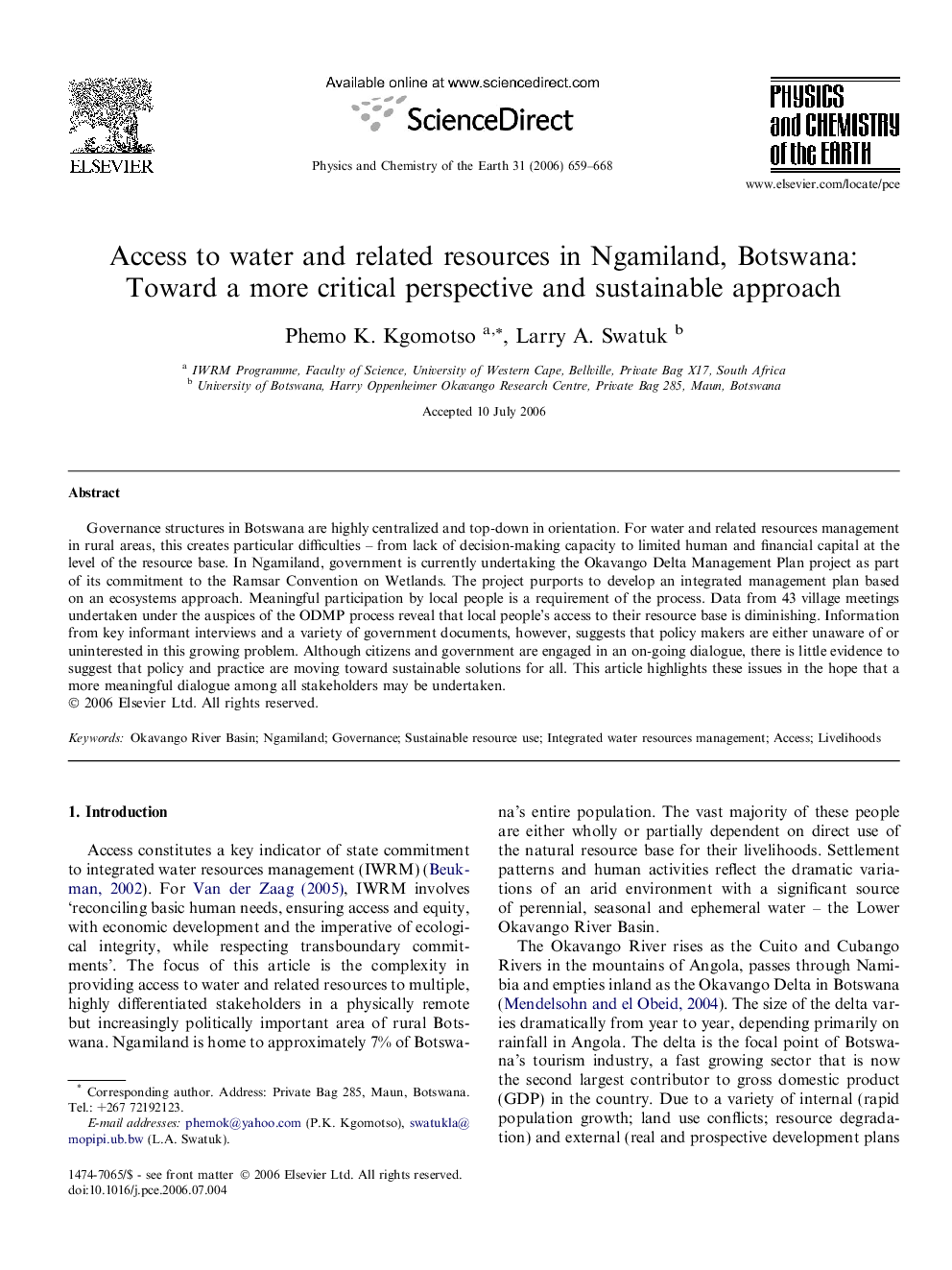| Article ID | Journal | Published Year | Pages | File Type |
|---|---|---|---|---|
| 4722160 | Physics and Chemistry of the Earth, Parts A/B/C | 2006 | 10 Pages |
Governance structures in Botswana are highly centralized and top-down in orientation. For water and related resources management in rural areas, this creates particular difficulties – from lack of decision-making capacity to limited human and financial capital at the level of the resource base. In Ngamiland, government is currently undertaking the Okavango Delta Management Plan project as part of its commitment to the Ramsar Convention on Wetlands. The project purports to develop an integrated management plan based on an ecosystems approach. Meaningful participation by local people is a requirement of the process. Data from 43 village meetings undertaken under the auspices of the ODMP process reveal that local people’s access to their resource base is diminishing. Information from key informant interviews and a variety of government documents, however, suggests that policy makers are either unaware of or uninterested in this growing problem. Although citizens and government are engaged in an on-going dialogue, there is little evidence to suggest that policy and practice are moving toward sustainable solutions for all. This article highlights these issues in the hope that a more meaningful dialogue among all stakeholders may be undertaken.
